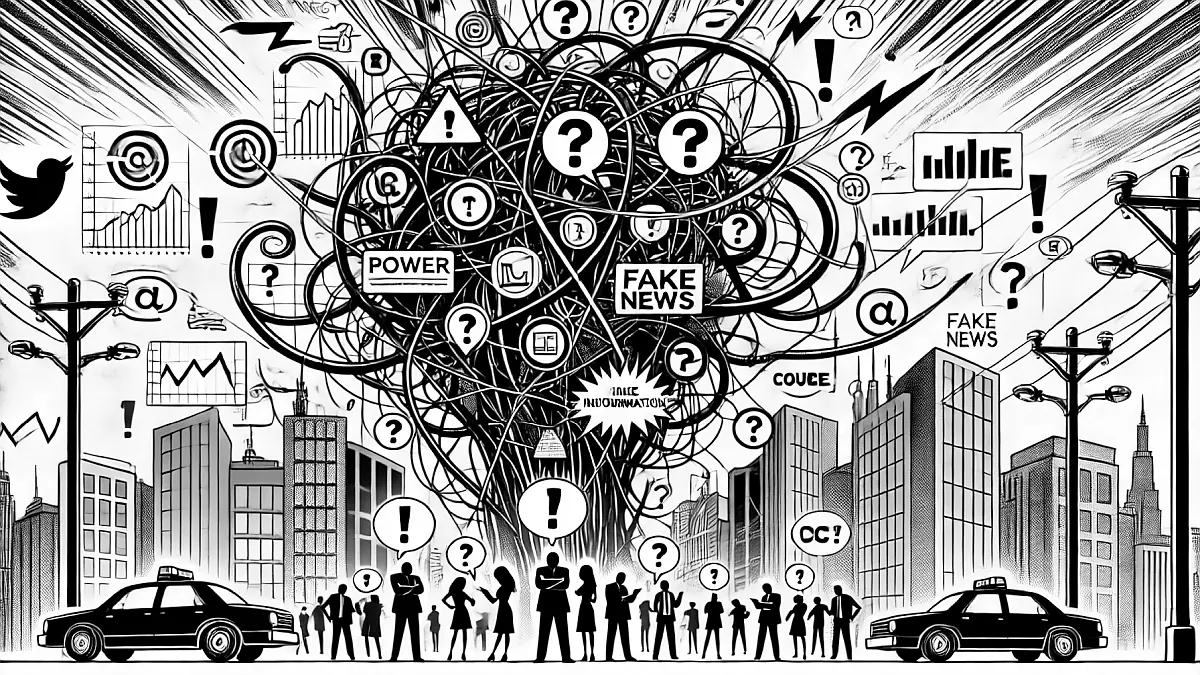 illustration: DALL-E
illustration: DALL-EDisinformation in Poland’s energy sector is becoming a serious challenge. It’s no longer just a media issue - it’s a threat to national security, public trust, and long-term investment. According to a report from the Institute of Media Monitoring (IMM), the volume of publications discussing disinformation in energy doubled in 2025 compared to the year before. The scale and impact of these false narratives are growing fast.
As Joanna Rafał from IMM points out, "Disinformation undermines Poland’s energy security and delays investments". Her analysis shows that public opinion can shift quickly when emotional and misleading content spreads. This, in turn, affects policy-making and investor confidence. People start questioning expert advice, doubt the benefits of renewable energy, and resist changes that are vital for Poland’s future.
How media in Poland react? IMM tracked nearly 70,000 unique publications warning and condemning disinformation between 2022 and 2025. These stories reached more than one billion views and impressions. That means the average internet user in Poland may have come across disinformation warrning about energy at least 37 times in one year.
| year | number of publications |
|---|---|
| 2025 | 27,498 |
| 2024 | 13,596 |
| 2023 | 11,479 |
| 2022 | 17,297 |
But much of false content spreads on social media. Platforms like Facebook and X (formerly Twitter) are the main arenas. Many messages repeat similar false claims and often come from political or ideological groups, including anti-EU and far-right networks. Some messages even originate from official-sounding sources, making them more dangerous.
The most targeted issue is nuclear energy. According to a joint report from NASK and the Polish National Security Institute, this topic attracts conspiracy theories, fear-based messaging, and unscientific arguments. Russian propaganda has played a central role. In just the first quarter of 2024, sources tied to Russia generated over 34 million online posts aimed at weakening public trust in climate policies and clean energy investments.
The EY cybersecurity report adds another layer of concern. In 2023, the number of cyberattacks on the energy sector doubled year-over-year. These included phishing scams where criminals pretended to be energy companies like PGE or Tauron. Victims received fake emails about refunds or overpayments and unknowingly shared sensitive information. These scams led to direct financial losses for individuals.
Ads know you before you see them. Say hello to predictive AI analytics 👇
In response, the government and industry organizations have launched counter-campaigns. The Ministry of Energy’s initiative, "Don’t Get Fooled - Check the Facts", helps the public understand common energy myths. The Polish Society of District Heating Engineers also runs a campaign called "Energy for Real", focusing on science-based information.
Still, as Joanna Rafał emphasizes, more must be done. "Only facts - not emotions - can build trust in times of change", she says. This means constant monitoring, responsible journalism, and strong public awareness campaigns.
If disinformation continues unchecked, Poland may struggle to reach its energy goals and protect its citizens from manipulation and fraud.
COMMERCIAL BREAK
New articles in section Media industry
Freelancers 2025 in media and advertising. Useme report
Krzysztof Fiedorek
The modern media and communication market presents entirely new challenges for independent creators. Traditional services are giving way to more complex forms of messaging. The most popular industries in which Polish freelancers operate focus on companies' online presence and visual content.
Video content in Poland. What and how we watch
Paweł Sobczak
Video content is watched remotely, but streaming services are mainly enjoyed in the comfort of home. This is how the consumption of audiovisual content by Poles in 2025 can be summarized. This is the result of an analysis of a study conducted by SW Research and data from the company MEGOGO.
How artificial intelligence misrepresents the news. PBC analysis
Sylwia Markowska
In news summaries generated by the most popular models in Polish, as many as 46% of responses contained at least one significant error, 27% had serious issues with sources (missing, misleading, or incorrect), and 19% contained hallucinations and outdated information.
See articles on a similar topic:
We Trust AI-Generated Fake News More Than Human-Created News
KrzysztoF
Generating and spreading misinformation with AI can negatively affect various areas of life, including global healthcare. To examine how AI-created text impacts the comprehension of information, researchers from the University of Zurich analyzed tweets generated by GPT-3.
Zero-click search 2025. The even bigger end of clicking in search engines
Bartłomiej Dwornik
Google is giving up its role as a web signpost. More and more, it wants to be the destination of the whole journey. ChatGPT and Perplexity are hot on its heels, changing the rules of the search game. AI Overviews is a card from the same deck. Only content creators are losing ground in this race.
Can a Robot Be Good Boss? Researchers from SWPS Look for Answers
SWPS
A robot giving orders at work is no longer a science fiction scenario - it's a research topic. Scientists from SWPS University in Poland set out to find out whether a robot can effectively manage human workers.
Journalism in the age of AI. Why people prefer humans over machines
Krzysztof Fiedorek
Only 12% of people accept news created solely by AI, while 62% prefer those written by humans. At the same time, only 19% notice labels indicating the use of artificial intelligence, while younger audiences ask AI to explain the content to them. These are the findings of the Reuters Institute report on artificial intelligence in media.





























